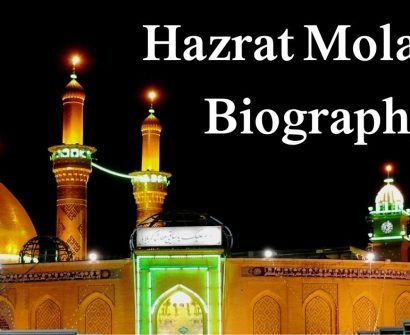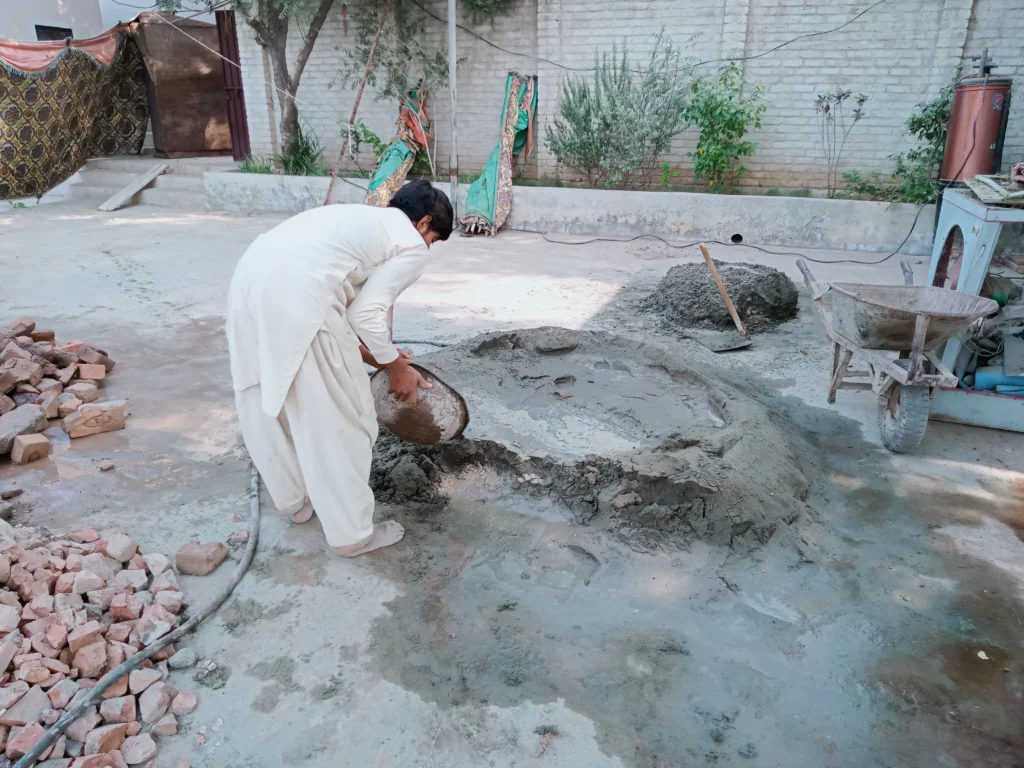21 Ramadan: Youm-e-Shahadat of Amir al-Mu’minin Hazrat Ali (RA) – The Lion of Allah and Beacon of Justice

Introduction
The 21st of Ramadan marks the martyrdom of Hazrat Ali ibn Abi Talib (RA), the fourth Caliph of Islam, a towering figure of faith, courage, and wisdom. Known as Asadullah (Lion of Allah) and al-Murtaza (the Chosen One), Hazrat Ali (RA) occupies a unique position in Islamic history as the Prophet Muhammad’s (PBUH) cousin, son-in-law, and one of his earliest companions. His martyrdom on this sacred night during the last ten days of Ramadan—a period of intense spiritual reflection and divine mercy—invites Muslims worldwide to reflect on his legacy of justice, devotion, and sacrifice. In this article we cover the topic “Hazrat Ali Youm e Shahadat“.
This article delves into the life, virtues, and enduring lessons of Hazrat Ali (RA), while also exploring the significance of the 21st Ramadan, a night intertwined with both profound grief and the hope of Laylatul Qadr (the Night of Decree).
Read More: Hazrat Ali (Karram Allahu Wajhahu al-Kareem)
Early Life and Relationship with the Prophet (PBUH)
Birth and Lineage
Hazrat Ali (RA) was born in Mecca in 599 CE, ten years before the Prophet’s (PBUH) divine mission began. He belonged to the Banu Hashim clan of the Quraysh tribe, the same noble lineage as the Prophet (PBUH). His father, Abu Talib, was the Prophet’s uncle and protector, while his mother, Fatimah bint Asad, was among the earliest believers.
The First Child to Embrace Islam
At the age of 10, Hazrat Ali (RA) became the first child to accept Islam. When the Prophet (PBUH) began preaching, young Ali (RA) declared, “I will help you, O Messenger of Allah!” His unwavering faith earned him the title “Karam Allahu Wajhahu” (May Allah Honor His Face), as his face was never bowed to idols.
The Prophet’s Beloved Companion
Raised in the Prophet’s (PBUH) household, Hazrat Ali (RA) grew under his direct guidance. The Prophet (PBUH) cherished him deeply, stating:
“You are from me, and I am from you.” (Sahih Bukhari)
Their bond was further cemented when the Prophet (PBUH) married his beloved daughter, Fatimah al-Zahra (RA), to Ali (RA). Their union blessed the Ummah with Imam Hasan (RA) and Imam Husayn (RA), the “Leaders of the Youth of Paradise.”
Virtues and Titles of Hazrat Ali (RA)
The Warrior of Islam
Hazrat Ali (RA) was renowned for his unmatched bravery in battles such as Badr, Uhud, and Khandaq. At the Battle of Khaybar, the Prophet (PBUH) handed him the standard, proclaiming:
“I will give the flag to a man who loves Allah and His Messenger, and whom Allah and His Messenger love.” (Sahih Muslim)
Ali (RA) single-handedly conquered the impregnable fortress of Khaybar, uprooting its massive gate—a feat of strength still celebrated today.
The Gate of Knowledge
The Prophet (PBUH) declared:
“I am the City of Knowledge, and Ali is its Gate.” (Tirmidhi)
Hazrat Ali (RA) was a fountain of wisdom, resolving complex theological and legal matters with profound insight. His sermons in Nahj al-Balagha (Peak of Eloquence) remain a cornerstone of Islamic literature.
The Champion of Justice
As Caliph, Hazrat Ali (RA) prioritized justice above all. A famous incident involved a legal dispute with a Jewish man over a stolen armor. Despite being the ruling Caliph, Ali (RA) submitted to the judge’s verdict, demonstrating that even leaders are bound by Islamic law. His fairness moved the Jew to embrace Islam.
The Caliphate and Challenges
Ascension to Leadership
After the martyrdom of Hazrat Uthman (RA), Hazrat Ali (RA) assumed the Caliphate in 656 CE. His reign was marked by internal strife, including the Battle of the Camel and the Battle of Siffin, as he sought to unify the Muslim community amid rising factionalism.
Governance and Reforms
Hazrat Ali (RA) introduced groundbreaking reforms:
- Economic Equity: He abolished favoritism in wealth distribution.
- Judicial Integrity: He appointed Qazi Shuraih, emphasizing rule of law over power.
- Moral Accountability: He famously stated, “Every person is a shepherd and responsible for their flock.”
The Martyrdom: A Night of Sorrow and Honor
The Assassination
On the 19th of Ramadan 40 AH (661 CE), while leading Fajr prayers in Kufa’s Great Mosque, Hazrat Ali (RA) was struck by a poisoned sword wielded by the Kharijite Abd al-Rahman ibn Muljam. The attack stemmed from political grievances, yet Ali (RA) forgave his assailant on his deathbed, urging his followers to treat him justly.
His Final Days
For three days, Hazrat Ali (RA) endured excruciating pain, using his time to counsel his sons, Hasan (RA) and Husayn (RA), and the community. On the 21st of Ramadan, he succumbed to his wounds, declaring:
“By the Lord of the Kaaba, I have succeeded!”
His son, Imam Hasan (RA), led the funeral prayers, and he was laid to rest in Najaf, Iraq—a site now revered by millions.
Lessons from Hazrat Ali’s Life
1. Justice Over Power
Hazrat Ali’s (RA) adherence to justice, even against his own interests, teaches Muslims to prioritize fairness in all dealings.
2. Spiritual Devotion
His nightly prayers and ascetic lifestyle remind us that true strength lies in humility before Allah.
3. Forgiveness and Mercy
Despite being mortally wounded, he pardoned his killer, embodying the Quranic ideal: “Repel evil with what is better.” (Quran 41:34)
4. Intellectual Pursuit
His emphasis on knowledge urges Muslims to seek wisdom as a divine trust.
The 21st Ramadan: A Night of Dual Significance
Laylatul Qadr and Martyrdom
The 21st Ramadan is both a night of mourning and divine opportunity. While commemorating Hazrat Ali’s (RA) sacrifice, Muslims intensify worship, seeking Laylatul Qadr—a night “better than a thousand months” (Quran 97:3). The convergence of these themes underscores Islam’s balance between remembrance of the past and hope for divine mercy.
A Call to Reflection
This night invites Muslims to:
- Recite the Quran: Reflect on Hazrat Ali’s (RA) teachings in Nahj al-Balagha.
- Engage in Dhikr: Seek forgiveness and spiritual renewal.
- Give Charity: Honor his legacy of generosity.
- Reconcile: Mend relationships, emulating his commitment to unity.
Read More: Hazrat Mola Ali Biography
Conclusion: The Eternal Legacy of the Lion of Allah
Hazrat Ali (RA) remains a paragon of faith, justice, and sacrifice. His life challenges Muslims to uphold principles over convenience, to lead with compassion, and to seek knowledge relentlessly. As we mourn his martyrdom on the 21st Ramadan, let us also embrace the spiritual vigor of the last Ashra, striving to earn Allah’s pleasure through worship and righteous deeds.
May the lessons of Hazrat Ali (RA) inspire us to live with integrity, love the Ahl al-Bayt (Prophet’s household), and uphold the unity of the Ummah. Ameen.
یوم شہادت حضرت علی کرم اللہ وجہہ الکریم: عظمت، شہادت اور سبق
بسم اللہ الرحمٰن الرحیم۔ الحمد للہ رب العالمین، والصلاۃ والسلام علیٰ سید المرسلین۔ اما بعد، فاعوذ باللہ من الشیطان الرجیم۔ السلام علیک یا رسول اللہ، السلام علیک یا حبیب اللہ، السلام علیک یا نبی اللہ، السلام علیک یا نور اللہ۔
آج، 20 مارچ 2025ء کو ہم دو اہم موضوعات پر غور کرنے کے لیے جمع ہوئے ہیں۔ ایک طرف حضرت علی کرم اللہ وجہہ الکریم کی شہادت کا دن ہے، جو شیر خدا، علی المرتضیٰ، اور خلفائے راشدین میں سے چوتھے خلیفہ ہیں۔ دوسری طرف رمضان المبارک کی 21ویں شب ہے، جو اس بابرکت مہینے کے آخری عشرے میں آتی ہے، جسے “عشرہ آزادی جہنم” کہا جاتا ہے۔ یہ راتیں—21، 23، 25، 27، اور 29—شب قدر کی عظمت سے منسوب ہیں، جو ہزار مہینوں سے بہتر ہے۔ اگرچہ مشہور قول کے مطابق شب قدر 27ویں شب کو ہوتی ہے، لیکن اس کا دقیق وقت اللہ کے علم میں ہے، جو ہمیں ان راتوں میں عبادت کی ترغیب دیتا ہے۔
رمضان کے آخری ایام کی روحانی فضیلت
رمضان عبادت، رحمت، اور مغفرت کا مہینہ ہے۔ اس کے پہلے عشرے میں رحمت، دوسرے میں مغفرت، اور تیسرے میں جہنم سے آزادی نصیب ہوتی ہے۔ قرآن کریم میں اللہ تعالیٰ فرماتے ہیں:
“شَہْرُ رَمَضَانَ الَّذِیْٓ اُنْزِلَ فِیْہِ الْقُرْاٰنُ ہُدًى لِّلنَّاسِ وَ بَیِّنٰتٍ مِّنَ الْہُدٰى وَالْفُرْقَانِ”
(سورۃ البقرہ: 185)
یعنی “رمضان کا مہینہ وہ ہے جس میں قرآن نازل کیا گیا، جو لوگوں کے لیے ہدایت اور واضح نشانیوں اور حق و باطل کے درمیان فرق کرنے والا ہے۔”
اسی طرح، شب قدر کے بارے میں اللہ تعالیٰ فرماتے ہیں:
“اِنَّآ اَنْزَلْنٰہُ فِیْ لَیْلَۃِ الْقَدْرِ وَمَآ اَدْرٰىکَ مَا لَیْلَۃُ الْقَدْرِ لَیْلَۃُ الْقَدْرِ خَیْرٌ مِّنْ اَلْفِ شَہْرٍ”
(سورۃ القدر: 1-3)
“بے شک ہم نے اسے شب قدر میں نازل کیا، اور تمہیں کیا معلوم کہ شب قدر کیا ہے؟ شب قدر ہزار مہینوں سے بہتر ہے۔”
ان راتوں میں فرشتوں کا نزول ہوتا ہے، جیسا کہ حدیث میں ہے کہ رسول اللہ صلی اللہ علیہ وسلم نے فرمایا:
“جب رمضان کی پہلی رات آتی ہے تو شیاطین اور سرکش جن بندھ جاتے ہیں، جہنم کے دروازے بند کر دیے جاتے ہیں، اور جنت کے دروازے کھول دیے جاتے ہیں۔” (صحیح بخاری: 3277)
ہم اللہ سے دعا مانگتے ہیں کہ وہ ہم پر رحم فرمائے، ہماری مغفرت فرمائے، اور ہماری عبادات—نماز، روزہ، صدقہ، اور خیرات—کو قبول فرمائے۔ لیکن افسوس کہ ان قیمتی راتوں میں بازاروں میں رش بڑھ جاتا ہے۔ میری آپ سے گزارش ہے کہ ان راتوں کو بازاروں میں ضائع کرنے کے بجائے، مرد مساجد میں اور خواتین گھروں میں عبادت میں مشغول رہیں، تاکہ غفلت اور گناہ سے بچ سکیں۔
معافی اور ہمدردی کا درس
یہ راتیں ایک دوسرے سے معافی مانگنے اور رشتوں کو سنوارنے کا موقع بھی ہیں۔ اللہ تعالیٰ فرماتے ہیں:
“وَسَارِعُوْٓا اِلٰی مَغْفِرَۃٍ مِّنْ رَّبِّکُمْ وَجَنَّۃٍ عَرْضُہَا السَّمٰوٰتُ وَالْاَرْضُ اُعِدَّتْ لِلْمُتَّقِیْنَ”
(سورۃ آل عمران: 133)
“اور اپنے رب کی مغفرت اور اس جنت کی طرف دوڑو جس کی وسعت آسمانوں اور زمین کے برابر ہے، جو متقیوں کے لیے تیار کی گئی ہے۔”
گھروں میں رہ کر ایک دوسرے سے معافی مانگیں، دلجوئی کریں، اور محبت کا مظاہرہ کریں۔ رسول اللہ صلی اللہ علیہ وسلم نے فرمایا:
“جو شخص اپنے بھائی سے معافی مانگتا ہے، اللہ اس کی مغفرت فرماتا ہے، چاہے اس نے کوئی ظلم نہ کیا ہو۔” (مسند احمد)
امید ہے کہ یہ رمضان ہم سے راضی ہو کر رخصت ہو اور ہماری مغفرت کا ذریعہ بنے۔ میرا دل ان گھروں کے لیے دکھتا ہے جہاں بیماری، غربت، یا ناچاقی نے سکون چھین لیا۔ اللہ ان کی مشکلات دور فرمائے اور ان کے گھروں کو مدینہ کی طرح امن سے بھر دے۔
حضرت علی کرم اللہ وجہہ الکریم کی سیرت
اب ہم حضرت علی رضی اللہ عنہ کی عظیم شخصیت کی طرف متوجہ ہوتے ہیں۔ رسول اللہ صلی اللہ علیہ وسلم نے ان کے بارے میں فرمایا:
“میں علم کا شہر ہوں اور علی اس کا دروازہ ہے۔” (جامع ترمذی: 3723)
ایک اور حدیث میں ہے:
“علی مجھ سے ہے اور میں علی سے ہوں۔” (جامع ترمذی: 3719)
حضرت علی رضی اللہ عنہ کی بہادری، سخاوت، اور حکمت کے واقعات لاتعداد ہیں۔ غزوہ خیبر ان کی شجاعت کا ایک روشن باب ہے۔ جب خیبر کا قلعہ فتح نہ ہو رہا تھا، رسول اللہ صلی اللہ علیہ وسلم نے اعلان فرمایا:
“کل میں پرچم اس شخص کے حوالے کروں گا جو اللہ اور اس کے رسول سے محبت کرتا ہے، اور اللہ اور اس کا رسول اس سے محبت کرتے ہیں۔” (صحیح بخاری: 3701)
صبح کو آپ صلی اللہ علیہ وسلم نے فرمایا: “علی کہاں ہیں؟” بتایا گیا کہ ان کی آنکھوں میں تکلیف ہے۔ آپ نے انہیں بلایا، اپنا لعاب دہن ان کی آنکھوں پر لگایا، اور دعا فرمائی۔ فوراً ان کی آنکھیں ٹھیک ہو گئیں، اور انہوں نے خیبر فتح کر لیا۔ روایت ہے کہ انہوں نے خیبر کا بھاری دروازہ اکھاڑ کر ڈھال کے طور پر استعمال کیا، جسے بعد میں سات یا بعض روایات کے مطابق چالیس آدمی نہ اٹھا سکے۔
ایک اور واقعہ ان کی عدل و انصاف کی مثال ہے۔ ان کی زرہ گم ہو گئی اور ایک یہودی کے پاس نظر آئی۔ معاملہ قاضی شریح رحمۃ اللہ علیہ کے سامنے پیش ہوا۔ حضرت علی نے اپنے غلام اور بیٹوں، حسن و حسین رضی اللہ عنہم، کو گواہ پیش کیا۔ قاضی نے غلام کی گواہی قبول کی لیکن بیٹوں کی گواہی مسترد کر دی، کیونکہ اولاد کی گواہی والد کے حق میں قابل قبول نہ تھی۔ فیصلہ یہودی کے حق میں ہوا۔ یہ دیکھ کر یہودی نے کہا: “یہ زرہ آپ کی ہے، میں نے چھپ کر اٹھائی تھی۔” وہ انصاف سے متاثر ہو کر مسلمان ہو گیا، اور حضرت علی نے زرہ اسے تحفے میں دے دی۔
انصاف اور نفس پر قابو
حضرت علی رضی اللہ عنہ کی طاقت صرف جسمانی نہ تھی۔ ایک جنگ میں انہوں نے دشمن کو زمین پر گرایا، لیکن جب اس نے ان کے چہرے پر تھوک دیا، تو انہوں نے اسے چھوڑ دیا اور فرمایا: “اب اگر میں تجھے ماروں تو یہ میرا نفس ہو گا، میں صرف اللہ کے لیے لڑتا ہوں۔” یہ ان کے نفس پر قابو کی عظیم مثال ہے۔ اللہ تعالیٰ فرماتے ہیں:
“وَالَّذِیْنَ جَاہَدُوْا فِیْنَا لَنَہْدِیَنَّہُمْ سُبُلَنَا”
(سورۃ العنکبوت: 69)
“اور جو لوگ ہماری راہ میں جدوجہد کرتے ہیں، ہم انہیں اپنے راستوں کی ہدایت دیں گے۔”
عبادت میں گم
ایک بار ان کی پنڈلی میں تیر لگا، جو نکالنا مشکل تھا۔ صحابہ نے مشورہ دیا کہ نماز کے دوران نکالا جائے، کیونکہ وہ اللہ کی یاد میں اس قدر محو ہو جاتے تھے کہ درد کا احساس نہ ہوتا۔ چنانچہ نماز میں تیر نکالا گیا، اور انہیں خبر نہ ہوئی۔ رسول اللہ صلی اللہ علیہ وسلم نے فرمایا:
“نماز مومن کی معراج ہے۔” (شعب الایمان: 3012)
ہمارا عقیدہ اور محبت
حضرت علی رضی اللہ عنہ کے بارے میں ہمارا عقیدہ کیا ہو؟ وہ امیر المومنین ہیں، جن سے رسول اللہ صلی اللہ علیہ وسلم نے بے پناہ محبت کی۔ آپ صلی اللہ علیہ وسلم نے فرمایا:
“جس کا میں مولا ہوں، اس کا علی مولا ہے۔” (جامع ترمذی: 3713)
اہل سنت میں خلفائے راشدین کی ترتیب ابوبکر، عمر، عثمان، اور علی رضی اللہ عنہم ہے۔ سب ہمارے سروں کے تاج ہیں، ہر ایک کی اپنی فضیلت ہے—صداقت، عدل، سخاوت، اور شجاعت۔ ان سے محبت ہمارا ایمان ہے۔
سبق اور دعا
حضرت علی رضی اللہ عنہ کی زندگی ہمیں اسلام کی خدمت، انصاف، اور محبت کا درس دیتی ہے۔ ان کی شہادت فجر کی نماز کے لیے اٹھتے ہوئے ہوئی، جو ہمیں عبادت کی اہمیت سکھاتی ہے۔ اللہ ہمیں ان کے نقش قدم پر چلنے، صحابہ اور اہل بیت سے محبت کرنے کی توفیق دے۔
اے اللہ! اپنے حبیب محمد صلی اللہ علیہ وسلم، ان کی آل، اور صحابہ پر رحمت نازل فرما۔










